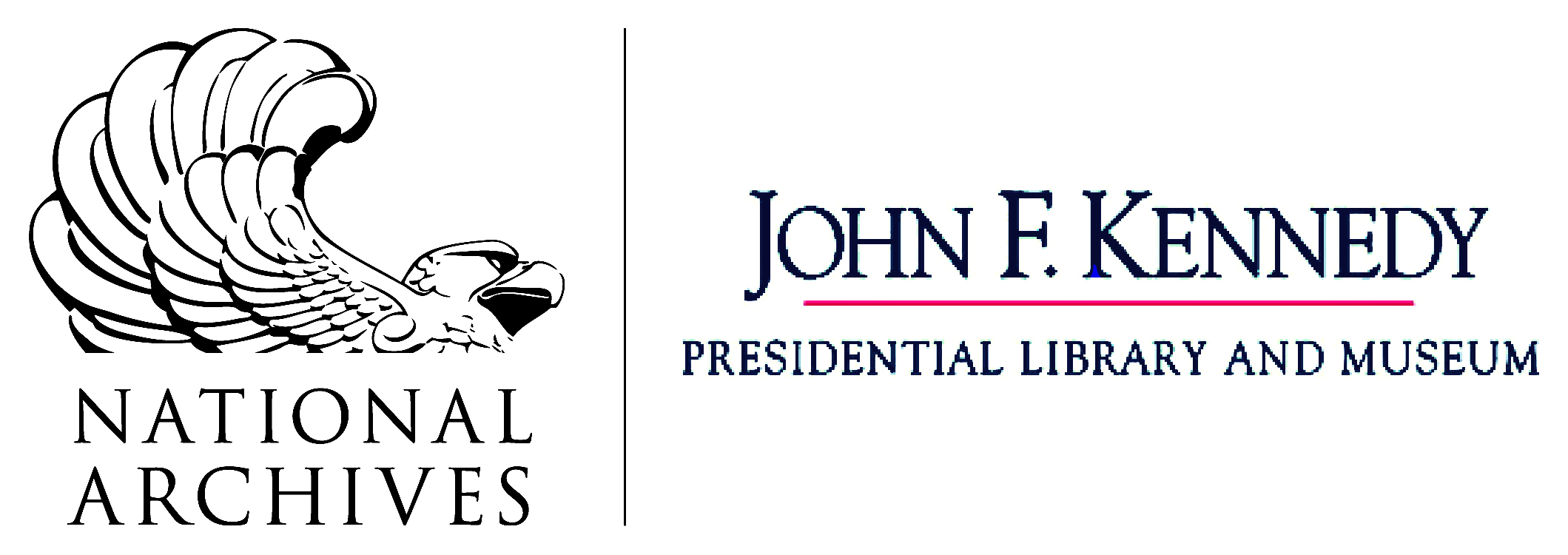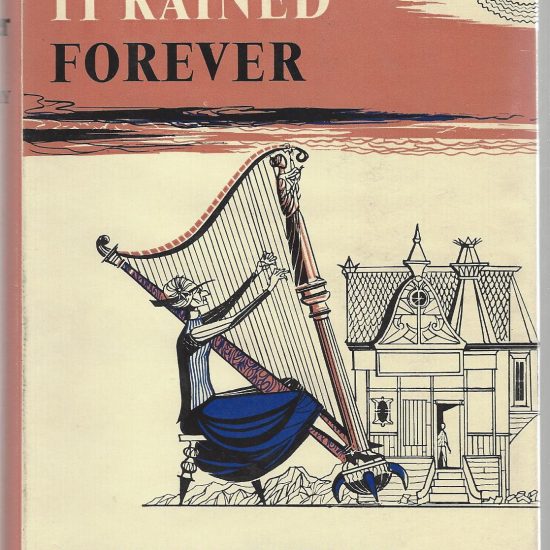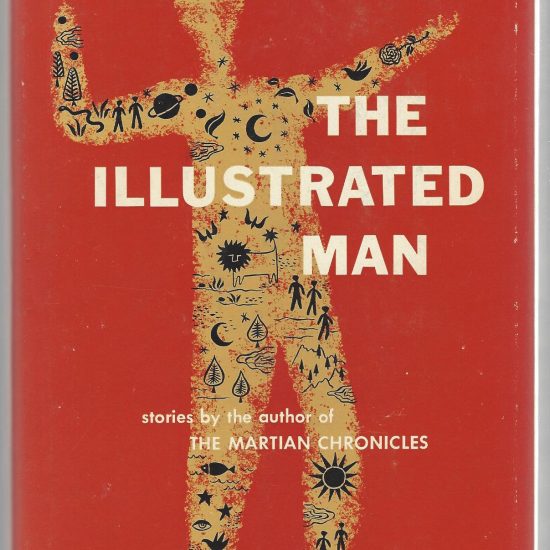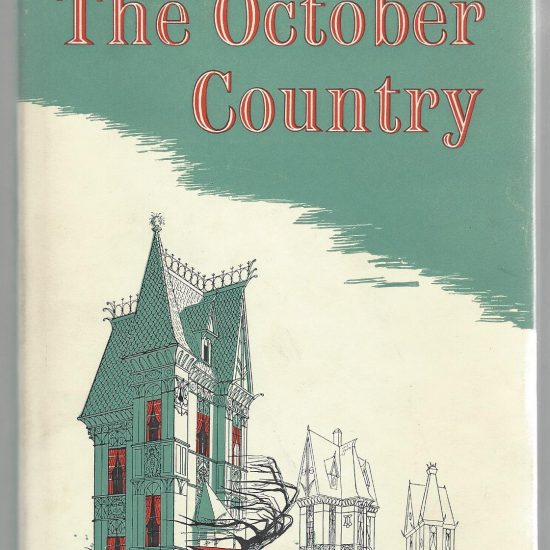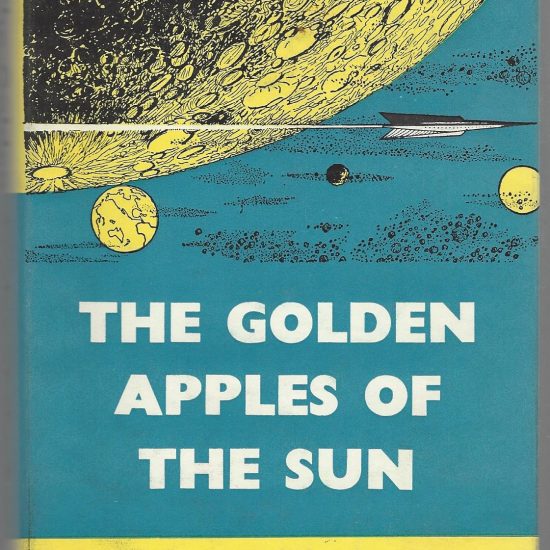By Stacey Flores Chandler, Reference Archivist
Almost ten years after Ray Bradbury published his 1953 dystopian novel Fahrenheit 451, a slew of his books arrived at the White House – a gift from Bradbury for President John F. Kennedy and First Lady Jacqueline Kennedy. Presidential Adviser Arthur Schlesinger, Jr. delivered the books to JFK along with a note describing Bradbury as “the most interesting writer about the future since H.G. Wells.” On the anniversary of Bradbury’s birth, we’re sharing those books and other fascinating finds that made their way through the White House and into our archives.
By the time Bradbury sent his books to the President, he’d already had a few interactions with the Kennedy campaign and White House. He was a member of the National Committee of Arts, Letters & Sciences for Kennedy for President (alongside writers like Rachel Carson, John Cheever, and one of Bradbury’s own literary favorites: Katherine Anne Porter), and later sent JFK a telegram urging collaboration with the United Nations. Archivists found the telegram in a search for Bradbury-related documents in 2014.
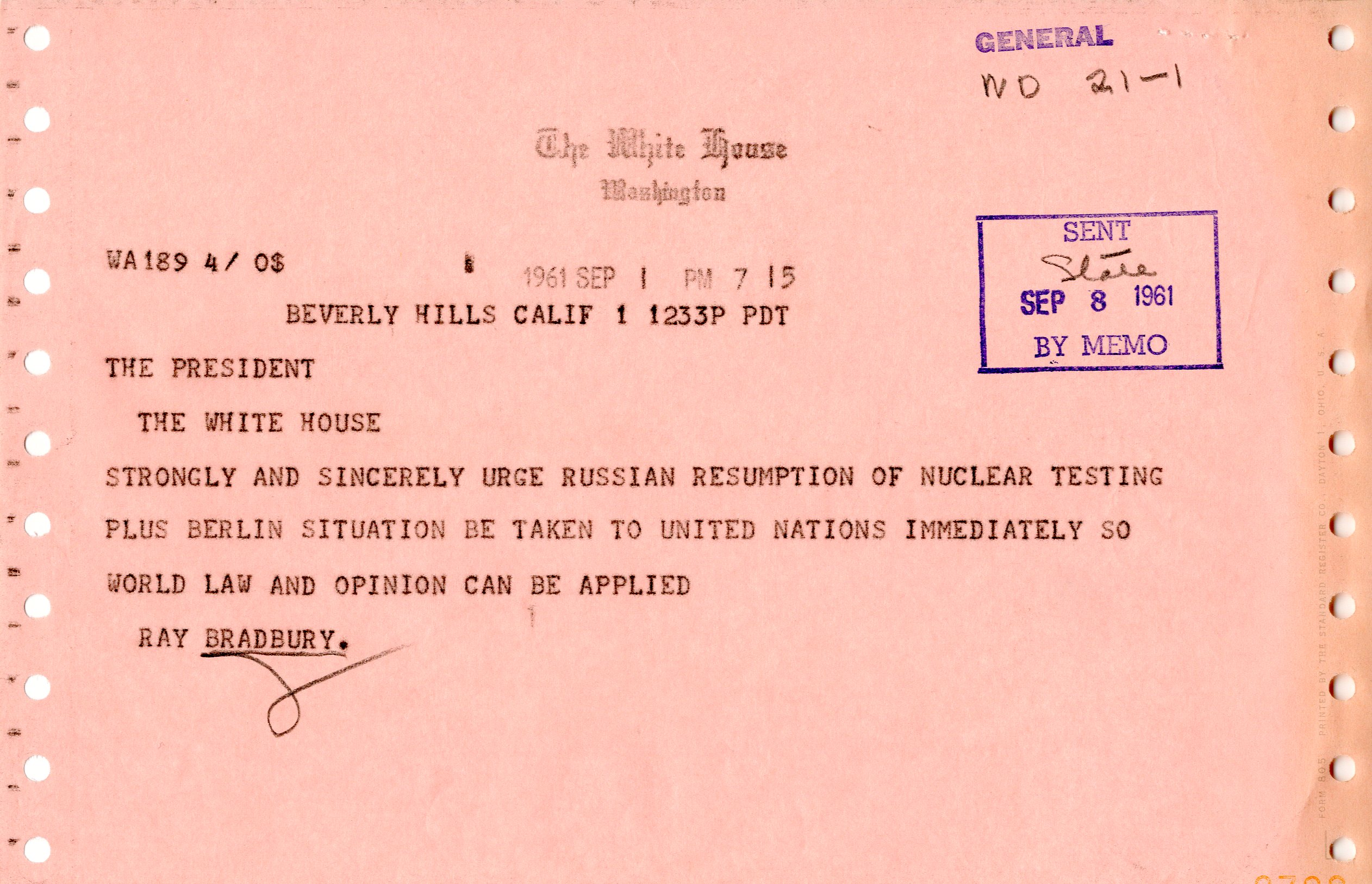
We also found something even more intriguing: a 1962 letter to the White House, in which Bradbury offered his services to the administration and noted that the “Space Age” was “a tremendously exciting time for me, as you can imagine, since I started writing about it when I was twelve.” But the most tantalizing part for our nerdy staff? Bradbury promised to send along a bundle of his own autographed books, and to mark stories he thought the President would find especially interesting.


Because of the huge volume of stuff we take care of, archivists’ work can often be a lesson in patience. When we found this letter, we were working on an inventory of the JFK Library’s “special books” collection (containing JFK’s own library as well as books that were gifted to him), so we hoped we’d eventually find Bradbury’s promised books as we made our way through the collection. Two years later, we were excited – but not too surprised – to find four autographed Bradbury books in a carton of White House books slated for cataloging: The October Country (1957 edition), The Illustrated Man (1958 edition), The Golden Apples of the Sun (1959 edition), and The Day it Rained Forever (1959 edition).
Tucked inside The Illustrated Man was Schlesinger’s note to JFK, which he gave to the President along with the four books and a copy of Bradbury’s original letter.

The copy of The Illustrated Man held another surprise: staining and indentations from Bradbury’s paperclips, which he used to mark stories he thought JFK should read. Paperclip-induced rust stains on paper usually make archivists pretty sad, but in this case, we’ve used them to figure out which stories Bradbury wanted to highlight: “End of the Beginning,” “Icarus Montgolfier Wright,” “Dark They Were, and Golden-Eyed,” and “The Strawberry Window.”
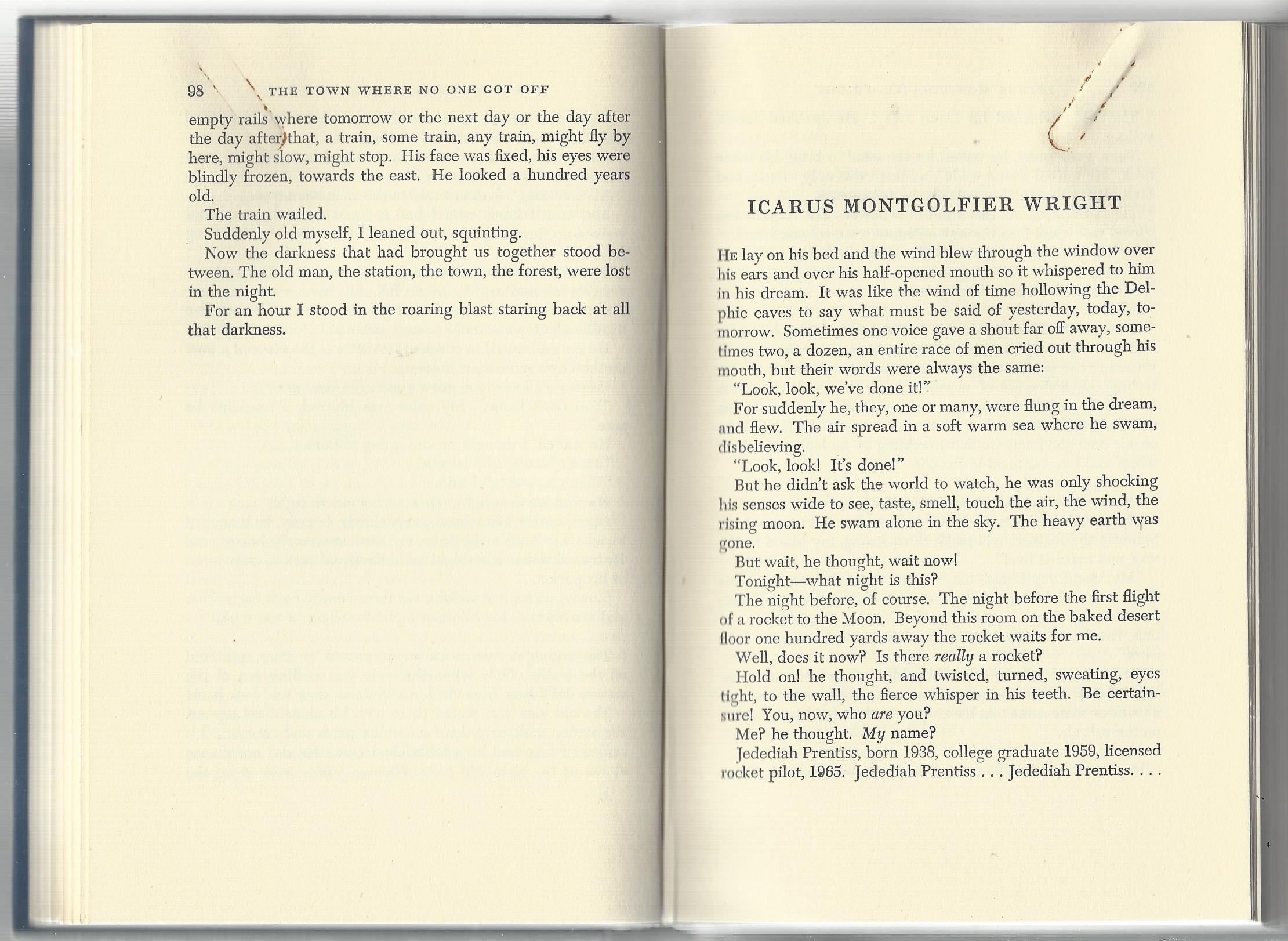
Though we don’t know whether JFK read these books (and we suspect that events of the summer and fall of 1962 kept him fairly busy), his response to Bradbury notes that the books would “allow me to indulge simultaneously both fantasy and scientific reality.”
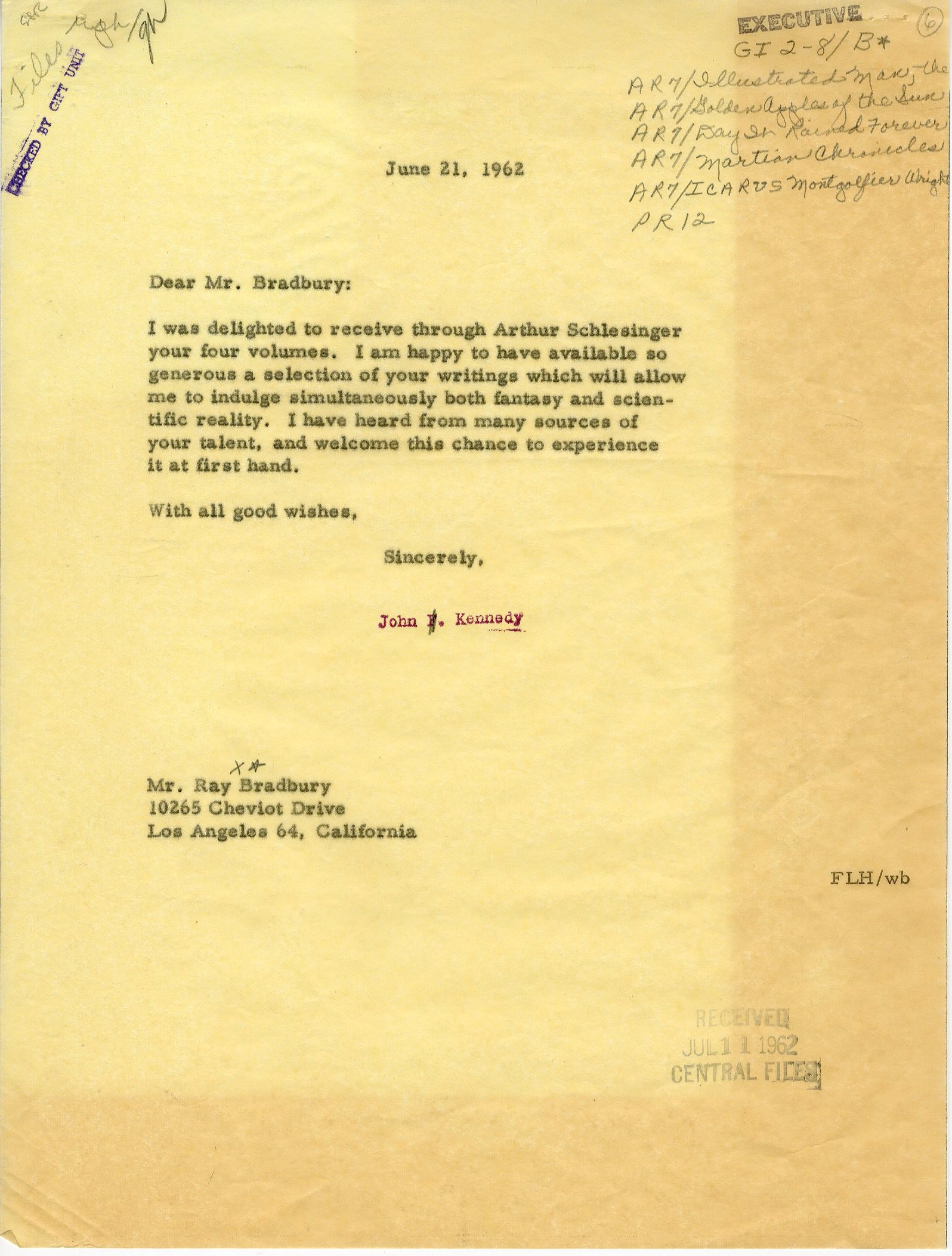
On the 97th anniversary of Bradbury’s birth, we hope his appearances in our archives help to illustrate Bradbury’s self-stated goal: “to help promote the Space Age as we would all like to see it promoted, as a motion toward peace and survival.”
With special thanks to the estate of Ray Bradbury for permission to post his writings, and to Bradbury fan and former JFK Archives intern Corbin Apkin for his searching skills!
